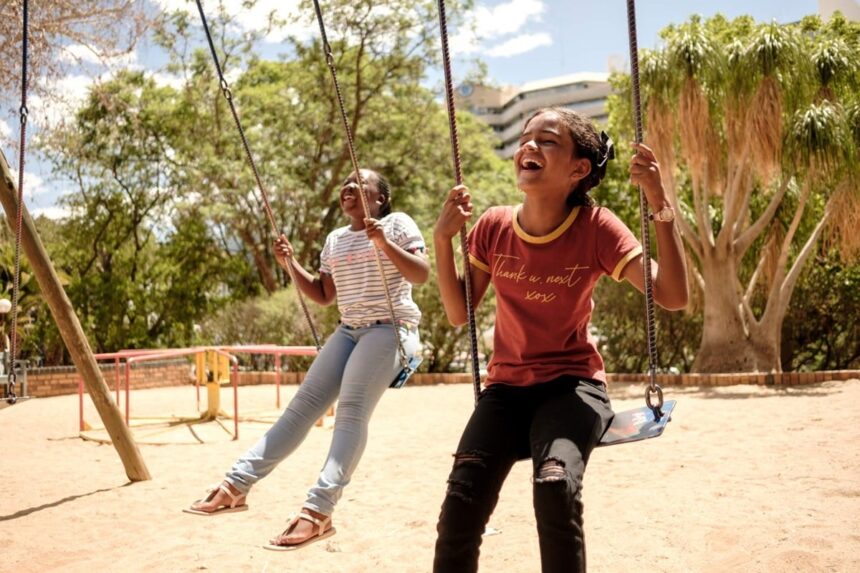Urgent Need for Investment in Adolescent Health
A significant increase in investment is crucial to tackle the changing health challenges and fulfill the mental, sexual, and reproductive health requirements of approximately 1.3 billion adolescents (ages 10-19) worldwide. This call to action comes from a recent scientific report published by the World Health Organization (WHO). Adolescence represents a vital phase of human growth characterized by substantial physical, emotional, and social changes; it serves as an essential period for establishing long-term health foundations.
The Importance of Protecting Young People’s Rights
“Advancing and safeguarding the health and rights of youth is fundamental to creating a brighter future for our planet,” stated Dr. Tedros Adhanom Ghebreyesus, WHO’s Director-General. “Neglecting the health risks faced by adolescents—some persistent while others are emerging—will not only pose severe threats to their well-being but will also lead to escalating economic burdens on society. Therefore, investing in adolescent healthcare services is both a moral obligation and an economically sound decision.”
Key Findings from Recent Research
This publication was unveiled during an event associated with the United Nations’ Summit of the Future. It underscores alarming trends regarding adolescent health over the past decade that necessitate immediate intervention.
- Currently, at least 14% of adolescents globally experience mental disorders, with depression and anxiety being particularly prevalent.
- Anemia among teenage girls remains widespread at levels comparable to those recorded in 2010.
- Nearly one out of ten adolescents faces obesity issues.
- The incidence of sexually transmitted infections (STIs), such as syphilis and chlamydia among youth continues to rise; untreated STIs can have lifelong repercussions on their health.
Additionally, violence—including bullying—affects millions of young individuals each year globally, leading to severe consequences for both their physical and mental well-being.
The Backlash Against Sexual Health Access
Worryingly, there has been a surge in efforts aimed at restricting adolescents’ access to sexual and reproductive healthcare services along with comprehensive sexuality education amidst increasing resistance against gender equality initiatives. Stringent age-of-consent laws hinder access to STI testing and HIV prevention services for young people. Such restrictions can alienate youth from seeking necessary care while resulting in enduring negative impacts on their overall health.
Bigger Challenges Ahead: Climate Change & Inequality
The study also points out broader systemic challenges that threaten adolescent futures including climate change effects, armed conflicts, and socioeconomic disparities.
Paving Pathways Toward Improvement Through Investment
The authors assert that positive outcomes are achievable through appropriate investments and support systems. For instance:
- A decline has been observed in adolescent HIV infections due largely to sustained collaborative efforts within this sector.
- There has been progress made towards reducing adolescent pregnancies as well as harmful practices like female genital mutilation (FGM) or early marriages.
- An increase in school attendance correlates positively with improved health outcomes; since 2000 alone nearly 30% fewer secondary-school-age children are out of school today compared with previous years—especially benefiting girls’ education opportunities.
A Call for Action: Prioritize Youth Engagement
The findings strongly advocate for prioritizing investments into adolescent wellness focusing on critical areas such as education accessibility alongside healthcare provisions coupled with nutritional support systems.
The authors urge governments worldwide enact policies protecting young people’s rights while ensuring healthcare frameworks cater specifically towards meeting unique needs faced by this demographic group alongside fostering active participation from youths across research initiatives programming decisions alike.
“When empowered adequately through platforms allowing them shape agendas concerning their welfare & future aspirations,” remarked Rajat Khosla Executive Director Partnership Maternal Newborn Child Health PMNCH co-hosted event where publication launched ”leaders must heed voices desires expressed amongst younger generations ensuring they become integral partners decision-making processes shaping tomorrow’s socio-economic political landscapes ultimately paving way healthier world everyone.”
A Global Commitment Towards Better Health Outcomes
This year saw global leaders pledge commitment accelerating endeavors aimed improving maternal child wellbeing including focus area addressing needs surrounding adolescence during World Assembly session held earlier May.
Implementing these commitments alongside those outlined within UN Pact Future will prove essential safeguarding promoting overall wellness current future generations alike!






